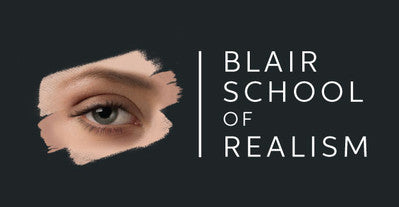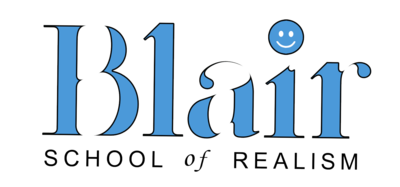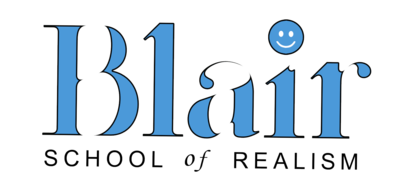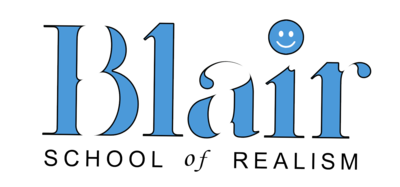
What comes to mind when you think about the arts? Is it a work by Michelangelo or Monet? Or how about a book by Jane Austen like Pride and Prejudice? It might be a Beatles record. Whether we're discussing performance art, music, literature, or visual art, they all have one thing in common: they were all created by humans. And while AI may have lately defeated humans at chess, it hasn't yet been able to generate physical paintings (although some people worry that it will soon). But there are reasons why artists think AI art poses a threat.
Airbrush artists feel AI art threatens their livelihoods.
You may have heard the term "AI art" thrown around in the news lately. It refers to works of art produced by artificial intelligence, and it implies that robots may replace people in some occupations. This technology has recently made headlines since many artists fear it would endanger their careers and devalue their work.
Airbrush artists are worried about losing their jobs for two reasons: 1) because AI could replace them and 2) because their art could be replicated by machines. If AI can paint a photo that looks exactly like something Picasso painted, what would stop an art collector from buying one instead of a painting by Picasso himself? And if you're an airbrush artist who has spent years honing your craft and perfecting your skills, how would you feel if someone who hadn't invested years into studying your craft was able to replicate your exact work?
Because they worry that this kind of technology will completely replace them, and that it would take over their professions and push them out of business entirely, artists who create paintings, sculptures, or other works that need human expertise frequently feel threatened by AI art. Additionally, they are concerned that if people start to value AI art more than more conventional forms of artistic expression (such as traditional paintings), they will begin to support less-established artists whose services are no longer required by galleries or institutions.
What actual danger exists here?
Although the technology used to do this type of work has been present since the 1990s, it has only recently improved enough to provide truly convincing results (and even then, there are limitations).
Where AI does threaten artists is in conceptual art and design. It excels at generating conceptual images, and abstract compositions. It can create hundreds of new images; in a fraction of the time it would take a human.
So far there aren't many examples of AI generating artwork with commercial value, it could soon change how and why people purchase art.
Where AI cannot compete with humans
As of this writing, AI art has become as good at representational or realistic artwork as most artist, except for photorealists. AI can create images that are more detailed than human artists, but it doesn't yet have the ability to draw certain things as well as an artist can. Observe its attempt to render a panther at the beginning of this article. This is because AI systems are trained on datasets that contain millions of images from thousands of artists and photographers, and this means that they have been taught what people consider 'good' art based on what humans have created. Will it get better. Most certainly. In several areas it already has, and many artists are upset about it.
What AI does better.
AI generates high quality images at lightning speed, and some AI platforms have achieved photorealism. This exceeds the capability of most artists, who's limited skills make reproduction of such imagery out of reach. Only the photorealist painters are immune to this perceived threat.
And then there's copyright.
AI art relies on existing images, which are often copyrighted. An ongoing debate surrounds the fair usage of copyrighted works which have been appropriated by AI companies without the consent of the artists who created them. Copyright law should protect against appropriation in derivative works, and this certainly will be an issue to be settled in the courts.
The future of creativity and the arts.
Even while AI will advance, it will probably never be able to produce an actual painting. In the same way a photograph is valued less than a photorealstic painting, AI will never be as embraced to the degree of original hand-painted art.
Because they are what make us human, artists will always have a place in the world. I don't think we'll ever completely replace creators with computers, even if AI is able to produce more original content than any one person could do on their own (which is implausible).
Should we be concerned?
While the thought of a robot making art can seem weird and even creepy, it's important to keep in mind that the art world has always been in flux. Look at how the camera impacted the art world, or how digital creations affected it. Many of us embraced the technology and used it as a tool, rather than reject it. It's inevitable that AI will be used as we continue to break down barriers and look for new ways to create and present art. While some people might worry that AI would replace them as artists, many others see it as an exciting chance for artists to work creatively with robots.
Some people argue that AI could increase access to art by bringing down prices or creating new marketplaces outside of traditional galleries or institutions (think street art). Others believe it could result in higher-quality work because algorithms would be able to analyze millions of images simultaneously rather than relying solely on the preferences of human curators. In the end, this might mean that we receive images that are more diverse and come from more viewpoints than ever before. But in the end it will be what collectors value. At this time collectors still value things originally made by the human hand.
Conclusion
While it’s true that AI art may pose a threat to some artists’ careers, it mostly has the potential to expand them. A new generation of artists, especially the photorealists, is already embracing AI art and making use of its tools and techniques in their own work. If we look at the history of art and creativity, we can see that this isn’t anything new—from surrealism and conceptualism in the 20th century to pop art in the 1950s, many movements have challenged our understanding of what constitutes ‘art’ through innovative approaches such as collage or appropriation. Each time there has been a shift like this one, humans have found a way to adapt their skillsets so they could continue creating great works without fear of being replaced by machines. Contemporary airbrush artists will do the same.
Just as the advent of photography did not eliminate the airbrush artist, AI is also just a tool, to be used by the artist in new and innovative ways, so you'd be better off embracing it, or risk being left behind!





Ryan Barkley
March 11, 2023
Great article as always Dru. I’m glad that you addressed this topic.
Johnny van Gogh
August 27, 2023
AI ain’t doing drugs getting the awesome colors I put out.
Marie-Noël Jmax
August 27, 2023
L’IA a été créé par l’homme comme la photo,et l’artiste continuera d’évoluer et d’exeller dans l’art.
Jen
August 27, 2023
Yes, AI will eventually take over everything if it’s not stopped now including airbrushing art or art in general. Verse: 21 For then there will be great tribulation, such as has not been since the beginning of the world until this time, no, nor ever shall be. Verse: 22 And unless those days were shortened, no flesh would be saved; but for the [a]elect’s sake those days will be shortened. Matthew 24:21 -22 These two verses talk about AI, people injecting the Covid jab was just an experiment and the beginning to altering your DNA, God’s image to become robotics or AI’s. These Artificial Intelligence will also house evil and demonic spirit entities. It happened in Noah’s time and during the times of the cities of Atlantis and Lemuria, sofisticated technology we humans today have yet to see, and it’s coming very soon.
Ethan Monroe
April 16, 2024
I never took AI (art or otherwise) seriously until a mate sent me some funny pic he created in Bing Image Creator the other week.. I’ve since gone full send and have unique prompts up the wazoo.
AI art is a tool. A shortcut for some and a source of inspiration for others. But without genuine creative spark the pieces tend to fall into derivative composition styles, a dime a dozen.. just like the artists who are concerned about AI art. If you have a genuine unique style, you really don’t have much to worry about.
Also.. bible quotes? Did you quote verses when you first saw a light bulb Jen? “A glow.. from the black? This is devil’s magick!” 😅
Рук
June 17, 2025
I am sorry but I don’t understand the art “from more points than ever before”. Then it becomes a mix without personality in it. You can’t be liberal and communist in the same time and you cannot be blonde and brunette in the same time. You can’t say “yes” to every point and absorb each possible point.
AI creates something average all the time because it can’t recognize the edge.
gaylord
June 17, 2025
ai cant make shit i seen kids in art class make better painting then these